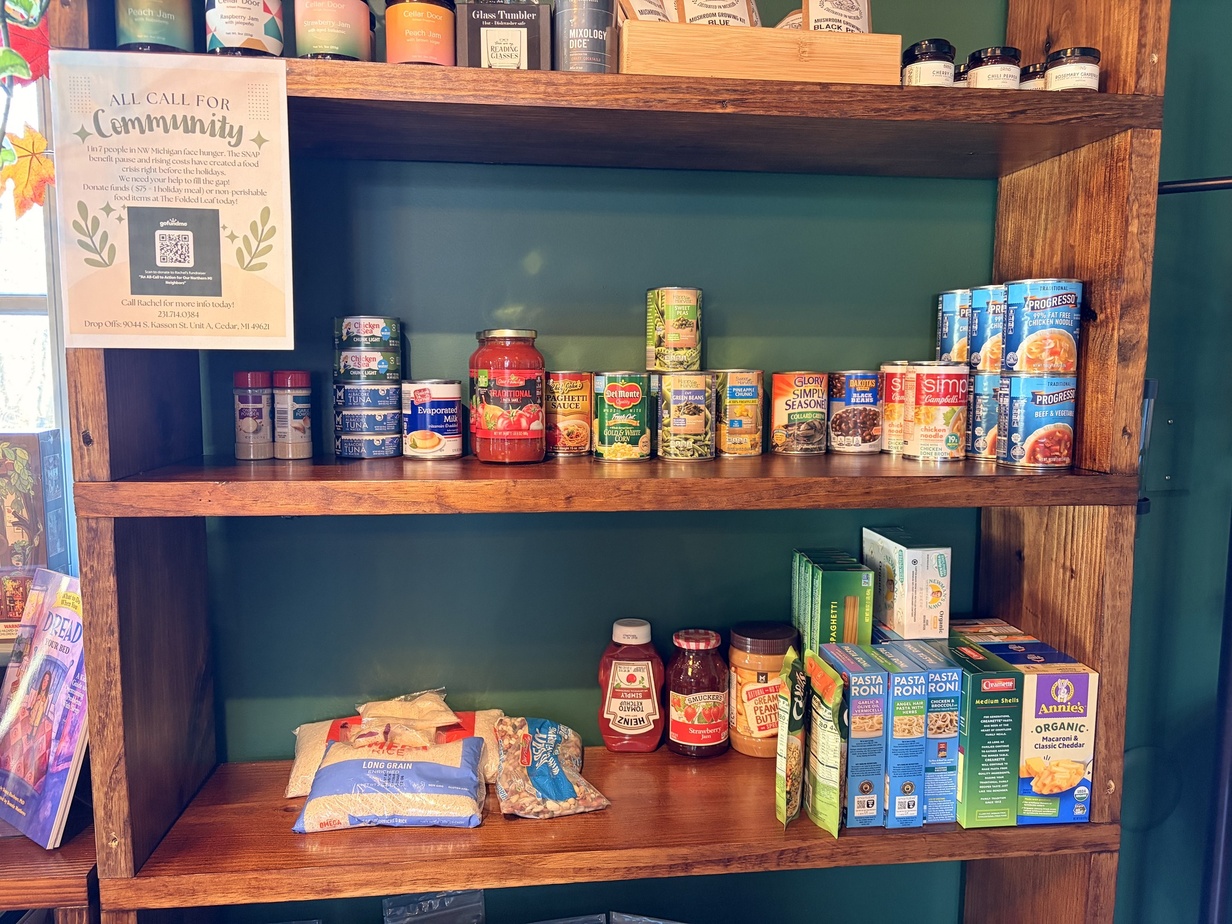
It Takes A Village: Four Local Businesses Helping With Food Insecurity As SNAP Funds Run Out
By Craig Manning | Nov. 1, 2025
Today starts a period of limbo for the Supplemental Nutrition Assistance Program (SNAP), which will impact food access for an estimated 1.4 million Michiganders. That news, combined with other effects of the ongoing federal government shutdown, has multiple local businesses stepping up to combat food insecurity. The Ticker touched base with four of them.
First, some background. Due to the federal shutdown, the United States Department of Agriculture (USDA) informed states on October 23 that there were “insufficient funds to pay for November SNAP benefits.”
In response, Michigan Attorney General Dana Nessel – along with 22 other state attorneys general and three governors – sued the USDA over the allegedly “unlawful” pause. Yesterday, a federal judge sided with that coalition, ordering the USDA to use $5.25 billion in contingency dollars to continue funding SNAP. But that dollar amount reportedly still won’t cover full November SNAP benefits nationwide, and Nessel has warned that it could take days for the program to restart, even in a best-case scenario.
Pete and Pearl Brown, owners of Old Mission Bakery, are no strangers to the effects of federal shutdowns. During the 16-day shutdown of 2013 and the 35-day shutdown of 2018/2019, the Browns gave out free loaves of bread to federal workers who were without paychecks. They’ve been doing the same thing for the past month, but with a twist.
“This time around, our customers asked to be involved and began purchasing loaves to share with anyone in need,” Pete Brown tells The Ticker. “One of our staff members created a donation form that looks like a slice of bread, and many of those forms are proudly affixed to the walls of bakery with sweet notes of encouragement and love.”
The longer this shutdown goes – today is day 32 – the more need Brown is seeing.
“It started out with a loaf or two a day. Some days now, it has blossomed into 20 or more,” he says. “At a certain point, we've always known we would need to turn people away. But our customers have filled the gap during this shutdown. They've made it possible for us to continue to spread a little hope and love during really challenging times.”
Also resurrecting a strategy from past shutdowns is Traverse City's Bayside Market, which has been raising funds to cover grocery costs for local federal workers, including Coast Guard employees and air traffic controllers. According to co-owner Kim Summers, the store has so far been able to provide free groceries to over 80 community members.
Bayside Market did the same thing in 2018/19, but Summers says the program “didn't take off as much then as it has this go-around.”
“We've seen so many families, and a lot of them are bringing their kids in,” Summers says. “We normally have a lot of specialty items here, but I ended up stocking things like frozen chicken nuggets and pizza, for young, picky eaters.”
For now, Summers plans to keep the focus on furloughed federal employees. “I wish I had the means to help everyone in need, but realistically, it’s not easy,” she explains. “We’re a small family-owned business, and we have a hard time in the off-season as is, so we are trying our best to do what we can.”
But Bayside Market is also continuing to accept donations – via GoFundMe and in person at the store, as well as through partnerships with local businesses like Fox Motors and Truly Free – and depending on public support and community need, Summers may expand into helping SNAP users.
“I know some places are letting customers donate a meal and then hanging the receipt on the wall,” she says. “Maybe we could do something like that with our sandwiches.”
Across town, at Traverse Bay Internal Medicine, owner Dr. Angela Pohl says it’s long been a policy to give out grocery store gift cards to help patients in need. That outreach effort is funded by “a huge annual yard sale where our friends, family, and patients donate items.” Proceeds from the yard sale allow Traverse Bay Internal Medicine to buy Oleson’s Food Store gift cards, with the Oleson’s Foundation kicking in an extra 10 percent.
“This year we had $2,200 in gift cards to distribute,” Pohl says. “We had given out about a dozen gift cards to our patients who we thought could use a little help, and when the announcement came last week about the SNAP benefits, we posted [about the program] on our social media. Within 24 hours we had given out about 25 gift cards, no questions asked.”
With the initial stack of gift cards gone, Traverse Bay Internal Medicine took steps to reload.
“We knew we had to do more, so we used $500 of our own funds to purchase additional gift cards,” Pohl tells The Ticker. “Those, too, went quickly, so I posted online and asked my friends for contributions. We raised another $800 and pitched in $500 more to purchase cards on Monday. Those were all gone by the end of day.”
While Traverse Bay Internal Medicine has officially halted the gift card program as of Thursday morning, Pohl says the medical practice is looking for other ways to help going forward.
“Rebecka, the front desk assistant who handed out the cards and got to meet the families in need, is now coordinating a canned food drive,” Pohl shares. “We plan to set up a mini free pantry outside, like many businesses do.”
The Folded Leaf, a new bookstore and hangout spot out in Cedar, has also created an in-house food pantry. The business announced that “emergency community initiative” last week, “to ensure every table in our community has food for this Thanksgiving and through winter.”
Through a GoFundMe campaign, partnerships with local farms, and direct donations of food and items like diapers and tampons, The Folded Leaf has created a “community essentials shelf” (pictured) that will remain open year-round. Owner Rachel Zemanek also plans to use some of the funds for a Thanksgiving meal box program, which will provide “complete holiday meals to families” later this month.
As of Friday afternoon, the GoFundMe campaign had raised nearly $2,300.
“We can’t rely on our food banks for everything,” Zemanek says of her decision to get involved. “Being a part of a community means being there for people even when it's hard. I think our community businesses needs to come together and give back what the community has given to us in terms of patronage and support. I'm using our platform to do just that, because this community has gone above and beyond for us.”
For a full list of food pantries in northern Michigan, click here.
Comment






